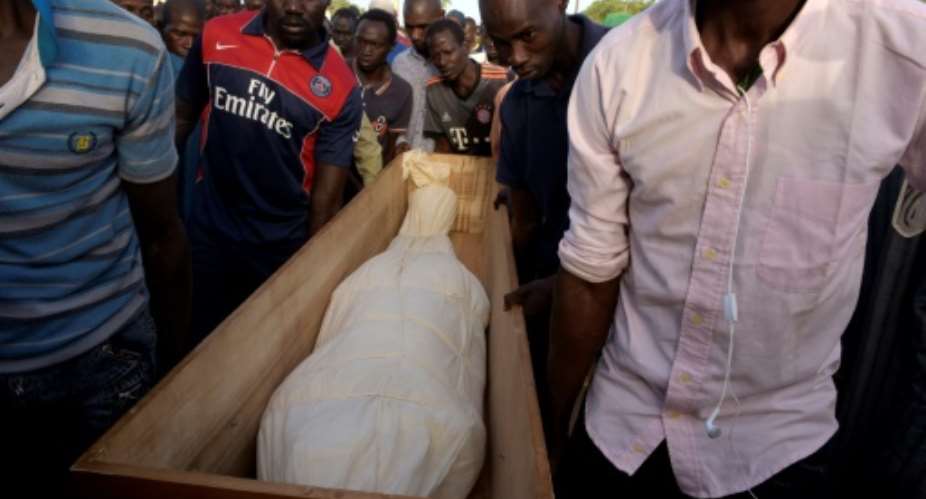Investigators probing a massacre in Senegal's troubled Casamance region said they had captured the organiser of the attack and said some separatist rebels were implicated in the killings.
Fourteen young men were slaughtered in execution-style killings in a protected forest on January 6.
The bloodbath -- which comes at a delicate time for peace talks for Casamance -- caused some to blame a group that has led a 35-year armed campaign for the region's independence.
The separatist group itself blames a fight within the illegal logging trade, which it says is run by corrupt officials.
In a press conference, Alioune Abdoulaye Sylla, public prosecutor of Ziguinchor, the main Casamance town, said that out of 24 people in custody, 16 "took an active part" in the killing.
These included a man "who planned the operation," he said.
"The January 6 attack was planned and executed by an individual working by a person working on behalf of two villages."
Assailants were "under the orders of a lieutenant in a (rebel) faction," he said.
"Overall, the information that we compiled led to the location and the establishment of a base," he said.
Sylla gave no further details about the location, nor did he identify the faction whose "lieutenant" was involved.
The massacre occurred just as the government and the Casamance Movement of Democratic Forces (MFDC) -- which has several internal factions -- sought to relaunch a peace initiative.
In an interview with AFP on Tuesday, Salif Sadio, a leader of the MFDC, reiterated that his organisation had nothing to do with the massacre.
He accused the army of using the killings as "a pretext... to launch military operations" in Casamance, and warned his fighters could end a three-year truce if this campaign continued.
The MFDC has said the killings resulted from rivalry between illegal loggers, who cut down prized rosewood and teak and then ship it abroad, much of it to China. Corrupt local and military officials are involved in the trade, it alleges.
The MFDC's long-running campaign has left thousands of civilians and military personnel dead and forced many to flee their homes. The economy, heavily dependent on agriculture and tourism, has been badly hurt.
However, the region has been calm in recent years after President Macky Sall came to office.
Peace negotiations restarted in October with the guidance of Rome's Community of Sant'Egidio, a charity with ties to the Vatican specialising in peace mediation.
So far, both Sall and the MFDC have insisted that "dialogue" will continue despite the tensions, and Sall -- in an apparent nod to the accusations directed to the logging industry -- has called for an overhaul of Senegal forestry laws.





 SSNIT must be managed without gov’t interference – Austin Gamey
SSNIT must be managed without gov’t interference – Austin Gamey
 Ejisu by-election could go either way between NPP and independent candidate — Gl...
Ejisu by-election could go either way between NPP and independent candidate — Gl...
 We never asked ministers, DCEs to bring NPP apparatchiks for returning officer r...
We never asked ministers, DCEs to bring NPP apparatchiks for returning officer r...
 No one denigrated the commission when you appointed NDC sympathizers during your...
No one denigrated the commission when you appointed NDC sympathizers during your...
 Dumsor: Corn mill operators at Kaneshie market face financial crisis
Dumsor: Corn mill operators at Kaneshie market face financial crisis
 Jamestown fishermen seek support over destruction of canoes by Tuesday's heavy d...
Jamestown fishermen seek support over destruction of canoes by Tuesday's heavy d...
 Election 2024: EC to commence voter registration exercise on May 7
Election 2024: EC to commence voter registration exercise on May 7
 Public schools rebranding: We’re switching to blue and white, we’re painting all...
Public schools rebranding: We’re switching to blue and white, we’re painting all...
